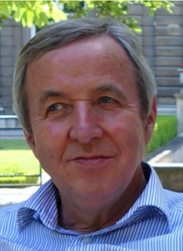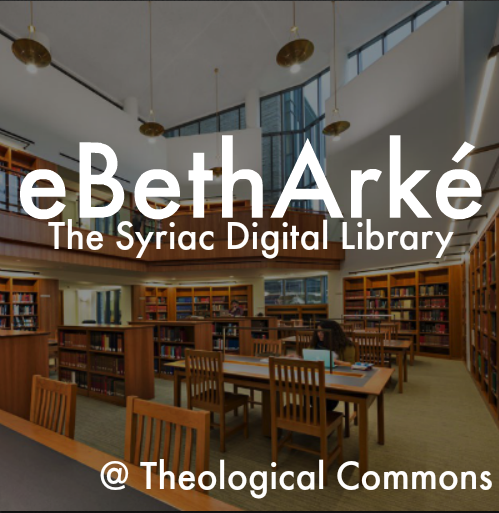The Library by Numbers…
Volumes & Collections
Unique Manuscripts
Private Library Collections
Aged Photographs
Audio Recordings
Aged Letters
The Beth Mardutho library is one of the largest libraries on Syriac studies in the world and has one of the foremost collections on academic research on Patristics & Early Christian History, Orthodox Christian Studies, Armenian Studies, and Classics. The collections are the result of the kind contributions of the private libraries of Dr. George Kiraz, Dr. Abrohom Nuro, Dr. Edward G. Mathews, and Dr. Lucas Van Rompay. Students who attend summer language courses have accessibility privileges to the many resources of the Beth Mardutho campus for the duration of their training in order to gain a greater understanding and awareness of ancient tradition.
Private Collections @ Beth Mardutho
Dr. Edward G. Mathews

The Edward G. Mathews Collection
Professor Edward Mathews’ main research interests are the early literature of Syria and Armenia, the influence of early Syriac theology on the Armenian Church, and especially Ephrem the Syrian, a number of whose works he has translated from both Syriac and Armenian; he is also engaged with Gorgias Press to translate the complete works of Jacob of Sarug, and with the Leiden Peshitta Institute to translate the Syriac Bible into English.
Malphono Abrohom Nuro

The late Abrohom Nuro was born Ibrahim Kahlaji in 1923 in Edessa, then migrated to Aleppo with the massive Edessan exodus of 1924. He was probably the first to Syriacize his name using Abrohom Nuro (though the original name remains in his official documents). In 1946 he joined the University of St. Joseph, Lebanon, and studied law, only to withdraw in the final year due to illness.
His private library is rich with books published in the Middle East during the 1800s and 1900s, most of which were acquired in photocopy form by George Kiraz.
Read his Hugoye obituary here.
Dr. Lucas Van Rompay
 The Lucas Van Rompay Collection
The Lucas Van Rompay Collection
Professor Rompay is professor emeritus of Religious Studies at Duke University. He has written, edited, and co-edited dozens of books and has written more than 100 papers and encyclopedia articles.
Dr. Erica Cruikshank Dodd
The Dr. Erica Cruikshank Dodd Collection
 Renowned art historian Erica Cruikshank Dodd has donated her slide collection of early Christian and medieval sites in the Levant. The approximately 5,000 images were taken during Dr. Dodd’s twenty-year career as Professor of Art History at the American University of Beirut.
Renowned art historian Erica Cruikshank Dodd has donated her slide collection of early Christian and medieval sites in the Levant. The approximately 5,000 images were taken during Dr. Dodd’s twenty-year career as Professor of Art History at the American University of Beirut.
Born in Lebanon to Canadian parents, Dr. Dodd earned a BA in History of Art at Wellesley College and a PhD in Byzantine Art at The Courtauld Institute of Art. She worked on Islamic art at Harvard University as a Fellow at the Middle East Centre for Arab Studies before teaching at the American University of Beirut. She was named a Senior Fellow in Byzantine Studies at Dumbarton Oaks, and she later held professorships in the Department of History of Art and fellowships in the Centre for the Study of Religion and Society, both at the University of Victoria, Canada. Dr. Dodd has published widely: her scholarship encompasses church paintings in medieval Lebanon, Quranic inscriptions in Islamic architecture, and Byzantine silver work.
eBethArké: The Syriac Digital Library
The eBethArké digital library, a collaboration between Beth Mardutho, Rutgers University, Princeton Theological Seminary, The Catholic University of America, Duke University, Brigham Young University, & Internet Archive, provides digital resources and tools for people to pursue the study of this ancient legacy globally.
The online Syriac portal is provided so that all students and scholars of Middle Eastern language can access and study Syriac literature. Books, periodicals, letters, and other publications and manuscripts in Syriac and Arabic are available, as well as literature in other languages which describe the Syriac language, grammar, and culture.
In addition to literary works and manuscripts from past centuries, the collection is filled with texts, video, and audio depicting modern Syriac scholarly work. These describe not just the historic texts themselves, but the cultural impact that the literature has had on society.


